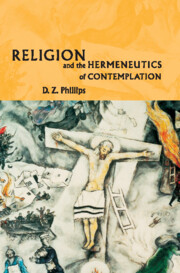Book contents
- Frontmatter
- Contents
- Preface and acknowledgements
- 1 Hermeneutics and the philosophical future of religious studies
- 2 Bernard Williams on the gods and us
- 3 Hume's legacy
- 4 Feuerbach: religion's secret?
- 5 Marx and Engels: religion, alienation and compensation
- 6 Tylor and Frazer: are religious beliefs mistaken hypotheses?
- 7 Marett: primitive reactions
- 8 Freud: the battle for ‘earliest’ things
- 9 Durkheim: religion as a social construct
- 10 Lévy-Bruhl: primitive logic
- 11 Berger: the avoidance of discourse
- 12 Winch: trying to understand
- 13 Understanding: a philosophical vocation
- Index of names
- Index of subjects
2 - Bernard Williams on the gods and us
Published online by Cambridge University Press: 03 December 2009
- Frontmatter
- Contents
- Preface and acknowledgements
- 1 Hermeneutics and the philosophical future of religious studies
- 2 Bernard Williams on the gods and us
- 3 Hume's legacy
- 4 Feuerbach: religion's secret?
- 5 Marx and Engels: religion, alienation and compensation
- 6 Tylor and Frazer: are religious beliefs mistaken hypotheses?
- 7 Marett: primitive reactions
- 8 Freud: the battle for ‘earliest’ things
- 9 Durkheim: religion as a social construct
- 10 Lévy-Bruhl: primitive logic
- 11 Berger: the avoidance of discourse
- 12 Winch: trying to understand
- 13 Understanding: a philosophical vocation
- Index of names
- Index of subjects
Summary
HERMENEUTICS AND MODERNITY
Having distinguished, in the last chapter, between the hermeneutics of recollection and the hermeneutics of suspicion, there is little doubt about which of these is taken by most philosophers to reflect our modernity. For them, we are not so much practitioners of the hermeneutics of suspicion as its beneficiaries. We have stood in the light for so long, it is said, that we have almost forgotten the religious darkness from which our fathers emerged. As a result, philosophers, in a confident use of the plural, say that it is no longer possible for us to believe in God. This impossibility, it is argued, is the fruit of enlightened reflection.
Given this cultural climate, it is easy to see how the hermeneutics of suspicion becomes identified with intellectual enquiry, and how the hermeneutics of recollection becomes identified with muddled thinking which needs to be rectified. In such a context, arguing for essential connections between philosophical enquiry and the hermeneutics of contemplation is likely to prove difficult. The situation is complicated by the fact that many apologetic defences of religion in the hermeneutics of recollection are, in fact, instances of muddled thinking. It is difficult to go beyond these to a consideration of other possibilities of religious sense, since for most practitioners of suspicion, all such possibilities are no more than mere remnants of a primitive mentality in our culture.
There is one embarrassment which this general claim has to face. The intellectual enlightenment we are supposed to have gained is said to be an inheritance from the Greeks.
- Type
- Chapter
- Information
- Religion and the Hermeneutics of Contemplation , pp. 31 - 54Publisher: Cambridge University PressPrint publication year: 2001



